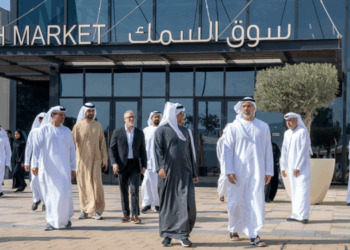Aquaculture and the challenges of climate change – The climate seminar held on 18 April at Nofima highlighted the many unresolved issues related to the effects of climate change on aquaculture. With 70 participants from the worlds of research, business, organisations and politics, the event highlighted a unanimous consensus: the aquaculture sector is already facing the impacts of climate change, but lacks the information needed to effectively manage these effects.
Challenges of aquaculture and climate change
According to a recent survey, 85% of respondents believe that the aquaculture sector is already experiencing the effects of climate change. However, only 12% believe that the industry has the necessary information to manage these effects. The figure was largely confirmed by Jon Arne Grøttum of the Norwegian Seafood Federation who reiterated the need for more knowledge to implement the right climate adaptation measures and emphasised the importance of incorporating climate considerations into the organisation’s strategies.
Research and cooperation
Elisabeth Ytteborg from Nofima, co-organiser of the conference with her colleague Carlo Lazado and Lynne Falconer from the University of Stirling, highlighted the consequences of climate change on locally farmed fish. Higher temperatures can have negative effects on the health of fish, affecting their skin and gills. Other effects of climate change include rising sea levels and extreme weather events, which can affect feed production, transport and all aspects of the aquaculture chain.
Ytteborg emphasised that oversimplifying the problem risks overlooking important factors in the development of adaptation strategies. For this reason, the seminar invited various stakeholders to contribute their perspectives. The complexity of climate challenges requires a multidisciplinary approach to find effective solutions.
Technology and fish biology
Carlo Lazado explained that although technology can help solve climate challenges, it is essential to start with fish biology. With 500 species of fish farmed around the world, each with different characteristics, much research is needed to understand how climate change affects each species. However, funds for such research are limited.
European Union initiatives
The European Aquaculture Society (EAS) is working to support the EU in providing guidance documents for climate change adaptation. Alistair Lane of the EAS emphasised the importance of quality data to accurately assess the impact of adaptation measures. The workshop provided valuable input to better understand the challenges and potential solutions in the aquaculture sector.
The University of Stirling encouraged the creation of an expert group to assess the ability of the aquaculture sector to adapt to climate change. Collaboration between experts and stakeholders is key to developing effective strategies and ensuring the long-term sustainability of the sector.
The Nofima climate workshop therefore highlighted the urgent need for more knowledge and cooperation to address the effects of climate change on aquaculture. Only through joint efforts and a multidisciplinary approach will it be possible to develop effective solutions to ensure the sustainability of the sector.
Aquaculture and the challenges of climate change








